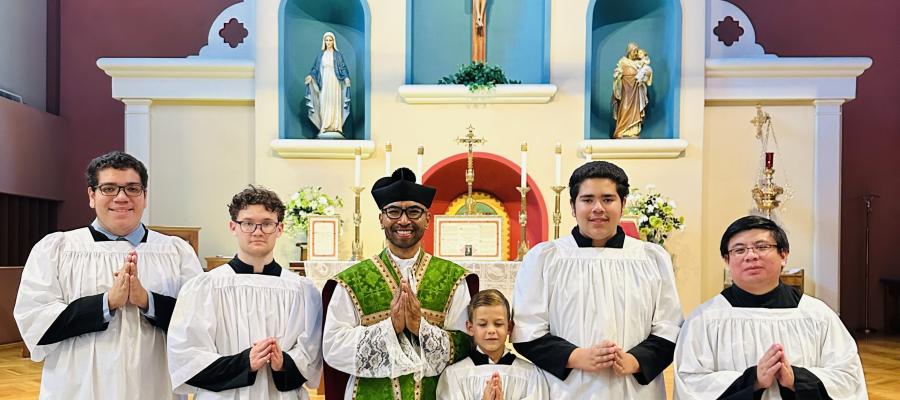
The Highest Form of Christian Worship
by Father Brian J. Soliven on Sunday October 26, 2025
Last Saturday, our parish retreat was an astounding success! It was a day that will long be remembered, not merely for the crowd it drew, but for the spirit that filled the air. Nearly two hundred and fifty souls came together, united by joy and fellowship, as we launched our new parish Mission Statement: “To be faithful like Mary.”
It was not an ordinary hunger that stirred among us. It was a deeper kind; it was the hunger of hearts longing to know the truth that nourishes the soul. We desired to understand why the Blessed Virgin, whose name adorns our parish walls and whose fiat still echoes through the centuries, holds such a luminous place in the life of the Church.
Together we journeyed back into the early dawn of Christianity, walking beside the voices of our ancestors in the faith, the saints and scholars who bore the torch of truth when the world was just starting to hear the Good News of the Gospel. We listened to St. Ignatius of Antioch, who once knew St. Peter himself—a single heartbeat away from the words of Christ. And in that closeness, that living chain of witness, we discovered what the earliest Christians knew beyond doubt: that the Church was, from the very beginning, deeply and thoroughly Catholic.
During the time of questions, one of our newest parishioners, a convert from Protestantism, raised a tender yet courageous question. “Why,” she asked, “do so many non-Catholic Christians accuse us of worshiping Mary? When we pray the rosary or sing to her, they say we take away from Jesus.”
Our speaker, Joshua Charles, himself a convert and a man whose intellect burns with zeal for truth, answered with great clarity. He explained that since the 16th century, much of Protestantism has turned away from the Holy Mass as a true sacrifice. To them, it became a mere symbol, a sacred reenactment but not the very reality of Calvary made present again.
Here lies the key to so much misunderstanding. For Catholics, the highest form of worship is sacrifice—the self-offering of Jesus Christ to the Father upon the altar. It is in this divine act that all our praises, prayers, and devotions find their meaning and their end. But if one no longer sees worship as sacrifice, then song and prayer become the summit. Anything else, like love for Mary, can seem a rival to Christ rather than a reflection of Him.
Yet Mary’s glory is no rival to His. She magnifies the Lord. Her faithfulness is the clear mirror that catches the sunlight of her Son. To be faithful like Mary is to let that same light pass through us, so that others, too, might see Christ shining more clearly in the world.
And so, our retreat was more than an event; it was a quiet awakening—a rediscovery of what it means to be Catholic, to be faithful, to be, like Mary, utterly surrendered to the will of God.







